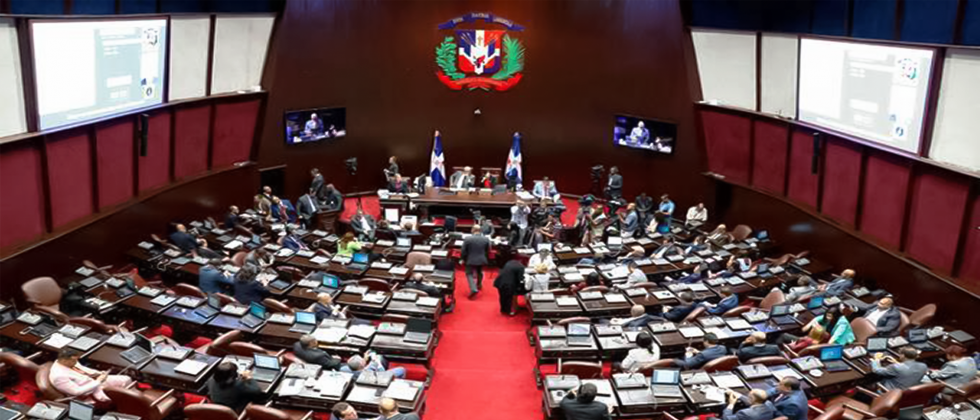news
“On Public Trust Funds”, an article by Dr. Leonel Fernández
January 16, 2023
With the fundamental purpose of reviewing several pending legislative bills, the Executive Branch extended the legislature of the National Congress until next February 15.
Among those projects to be reviewed is the one related to a public trust fund, which had been previously approved by the Senate and later sent to the Chamber of Deputies.
In the Lower House, the bill he did not receive the support of the main opposition parties; and with a vote equivalent to less than two thirds of the votes (a requirement of all organic laws), it was returned to the Senate so that it could review the modifications that had been introduced.
In accordance with the provisions established in its regulations, the objective of the public trust-fund bill is to establish its organization, structure and operation.
Also, to determine its legal capacity to administer public resources and provide, manage or execute specific works or infrastructure projects, or services that would benefit the collective interest.
Article 4 of the aforementioned bill specifies what a public trust-fund is. The Article reads as follows: “The modality of trust funds managed by the State, with the character of trustee, relates to the goods or rights that are part of its patrimony or with the objective of managing, implementing or executing works, goods, services or projects of public interest.”
In this case, what defines the public nature of the trust fund is the participation of the State which will transfer part of its properties for the creation of a new patrimony, independent of its original nature.
In 2011, during my last Administration, Law No. 189-11 was passed for the Development of the Mortgage Market and Trust Funds in the Dominican Republic. Later on, Decree 95-12 was issued, establishing its application regulations.
The fundamental objective behind those legal provisions was to facilitate the development of low-cost housing projects, thus reducing the significant important housing deficit in the Dominican Republic.
From a Public to a Private Trust Fund
In the aforementioned Law 189-11, the trust fund is conceived as a legal figure that is carried out between individuals, without the participation of the State.
In this case, one or several persons = known as trustors – transfer property rights or other types of rights to other legal persons called trustees, for the establishment of a separate patrimony. This separate patrimony will be administered and carried out in favor of one or several persons.
This is what is typically known in Anglo-Saxon law as a “trust.” It is generally used to establish a family estate, thereby guaranteeing succession rights.
But it can also be used for the establishment of a patrimonial fund relating to a university, a cultural center, or a public charity institution.
In regards to our country, the application of Law 189-11 has been highly successful. Thousands of real estate development projects have been carried out thanks to this legal provision and, for this reason, many young professional engineers and architects have been able to do remarkably well in their particular areas.
However, although Law 189-11 was conceived only for the private sector, Regulation 95-12 mentions in its Article 4, Paragraph d, the public sector trust fund. And states:
“It is that trust fund, constituted by the State or any Public Entity, regarding goods or rights that are part of its patrimony or with the objective of managing, implementing or executing works or projects of a collective interest.”
Based on the interpretation of the public trust fund concept, established in that legal provision, that such projects as “Red Vial RD” and “Ciudad Juan Bosch” were launched during the last Administration.
But during the current Administration of the PRM, what has been unleashed is a kind of Trustee-government. There are more than 20 public trust-fund projects, valued at more than RD$40 billion, which the government has programmed. It is only waiting for their complete legalization and legitimization through the approval of the bill that is currently waiting in Congress.
For Better or Worse
The public trust-fund is not a legal figure of universal scope. In Spain, its existence is unknown. The same is true in most European countries. Neither the United States nor the United Kingdom, considered to be the centers of the global financial system, resort to that category.
Historically, it has been mostly applied in Latin America. It began in Panama. Later on, it spread to El Salvador, Guatemala, Venezuela, Colombia, Peru, Argentina and Honduras.
However, in the Aztec nation, something truly amazing recently occurred. The country´s Union Congress, dominated by the MORENA party – the government party – and at the request of President Andrés López Obrador, recently approved the extinction of 109 public trust-funds due to an alleged lack of transparency and the transfer of public assets to transnational companies.
In Honduras, something similar occurred. Some 19 trust-fund were eliminated at the request of President Xiomara Castro.
Obviously, the public trust-funds should not be demonized. It is a financial legal instrument that could well play a role at the service of the economic and social development of the people.
However, in order to achieve this goal requires a very basic element: trust. A sense of trust that, first, will not transfer public assets to groups or economic power sector. Secondly, that the government is not going to use it for electoral political benefits.
The latter means that it will not have a parallel budget that is nourished by loans that go to the trust-fund assets, and that it will eventually compromise public funds, to carry out works or projects that otherwise could not be carried out.
Within the month that remains for the National Congress to begin its legislative period, there will be enough time to reflect and discuss the importance of public trust-funds in national development projects.
We hope the end result is for the best.





